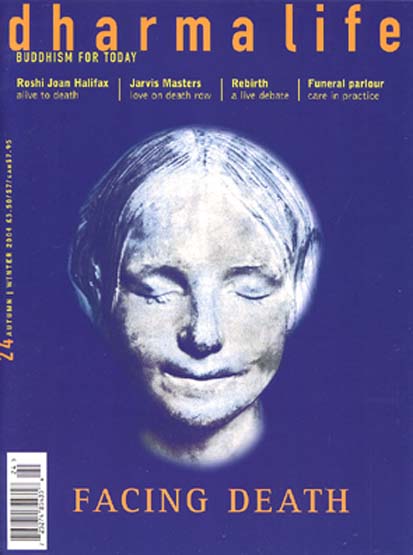The Cross and the Bodhi Tree
Two Christian encounters with Buddhism
Dir. Alan Channer
FLT films, 2004 (www.fltfilms.org.uk)
Home use £15.99 / $25; (charities £24.99, educational institutions £34.99)
Christian missionaries have not always been noted for their humility and receptivity in the face of other religions. It was quite a pleasure, therefore, to watch a documentary video in which Father Francois Ponchaud, an eminent member of the Foreign Missions of Paris, describes his changing perceptions of the Buddhists with whom he has lived and worked in Cambodia since 1965. Ninety per cent of Cambodians are Buddhist, many of them living without adequate food or basic medical care. Father Ponchaud confesses his astonishment at the joy of these impoverished people, as well as their goodness and compassion. He has come to see that when monks complain that Christians destroy Cambodian culture, they are right and that Christians have much to learn from 'our Buddhist Brothers'. In particular, he suspects that although what Christians say is good, they 'lack real transformation'.
He himself has taken up meditation as a means of transforming his heart and now feels he cannot live without it. All this is positive and heart-warming, although his amazement that he can learn anything from Buddhists displays an arrogance which is perhaps inevitable if he is to retain a sense of the value of his missionary work. When referring to the Buddhist nurse he works with, he exclaims: 'of the two of us, she is the more Christian' - as if Christianity is the yardstick of compassion against which Buddhists must be measured.
In the second of these two encounters, such blurring of differences between traditions is something about which Mother Rosemary is more wary. She leads a life of silence and prayer in an enclosed convent in Oxford, and has a long-standing interest in Buddhism. She has even spent two months at Amaravati, a Theravadin monastery in England. I was impressed by her integrity and genuine search for truth. At Amaravati she explored the relevance of the 'no-self' teaching to her own practice with a diligence that might well put many Buddhists to shame.
At first she found this teaching a 'sticking point' in her understanding of Buddhism. Respect for the person, she said, is primary in Christianity and she was worried by the nihilistic possibilities in the no-self doctrine. However, by meditating on it, she came to see how many images of herself she identified with and how much effort and anxiety went into them. She saw what a relief it would be to let go of them, thus understanding the key point: the insubstantial nature of all beings, not a lack of respect for individuals.
Mother Rosemary is clearly puzzled, in the positive sense, about how to reconcile Buddhism with her Christian faith. Yet, unlike Father Ponchaud, she makes no attempt to fit Buddhism into a metaphysical structure that serves Christian purposes. And she refuses to be drawn on such questions as 'Can Buddhists attain eternal life?'. 'You'd have to ask God that,' she answers with a laugh. Her deep respect for both Christianity and Buddhism makes her reluctant to attempt to unify religious traditions. 'A religious minestrone soup would fail those points of division which we have to take into account.' She suggests we need to 'transcend not bypass' the differences.
The Cross and the Bodhi Tree is intended primarily for Christian viewers interested in inter-faith dialogue. However, Buddhists can welcome the genuine attempts by these two committed Christians to meet the challenge of a faith which, while sharing many of their values, contains significantly different metaphysical and cultural assumptions.
Sudarshini teaches Philosophy of Religion to 16 to 18-year-olds.



